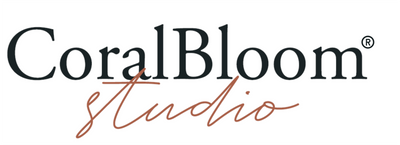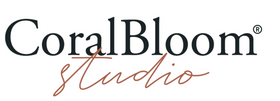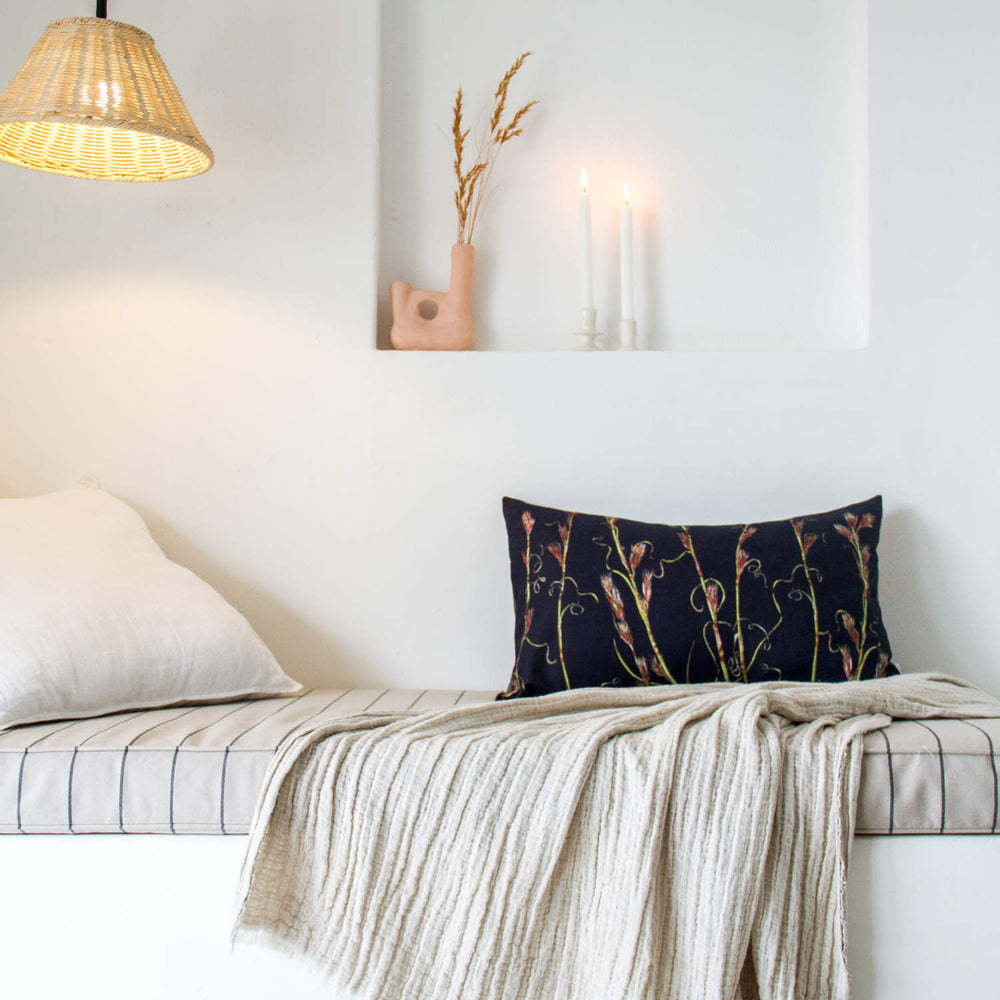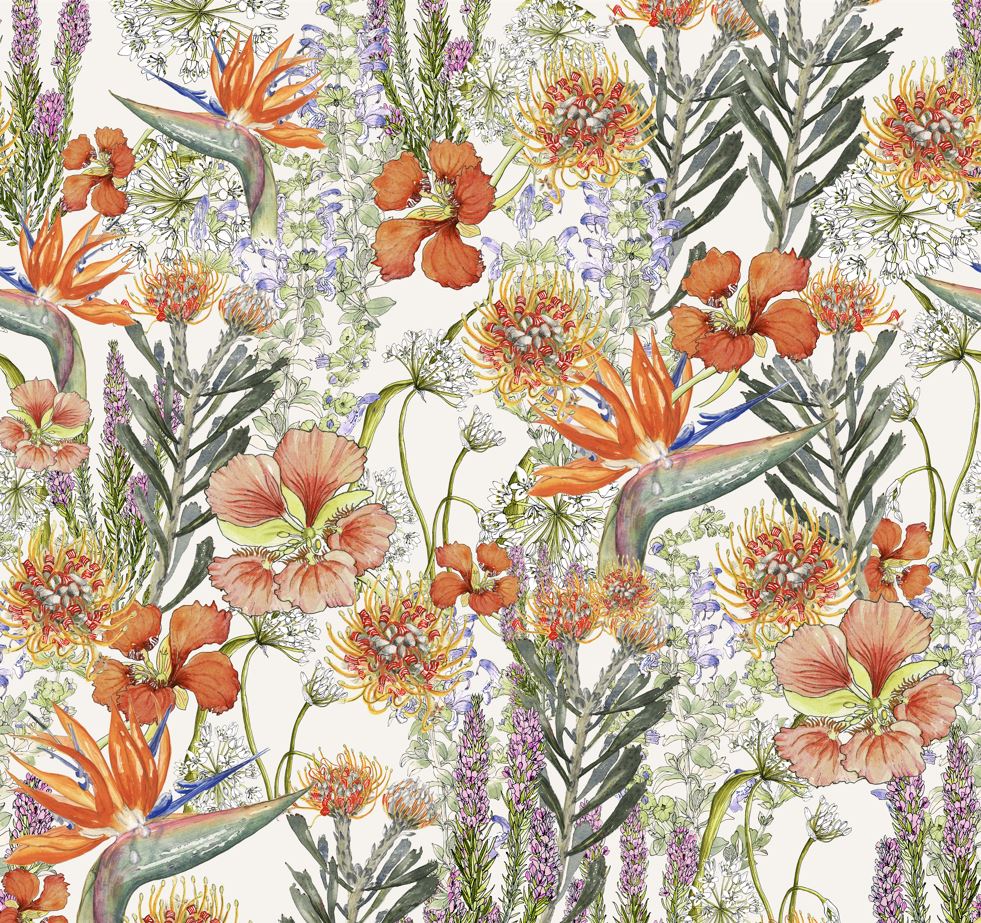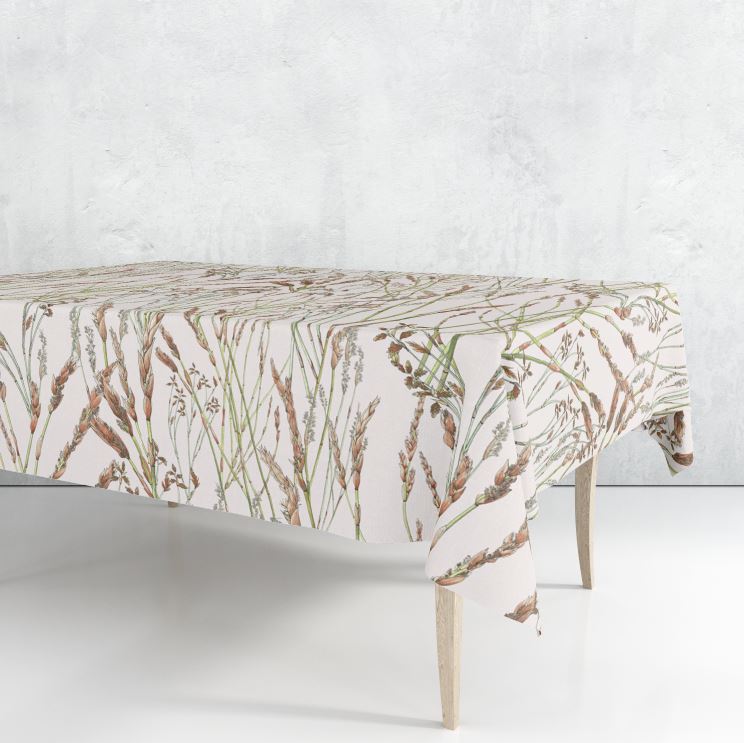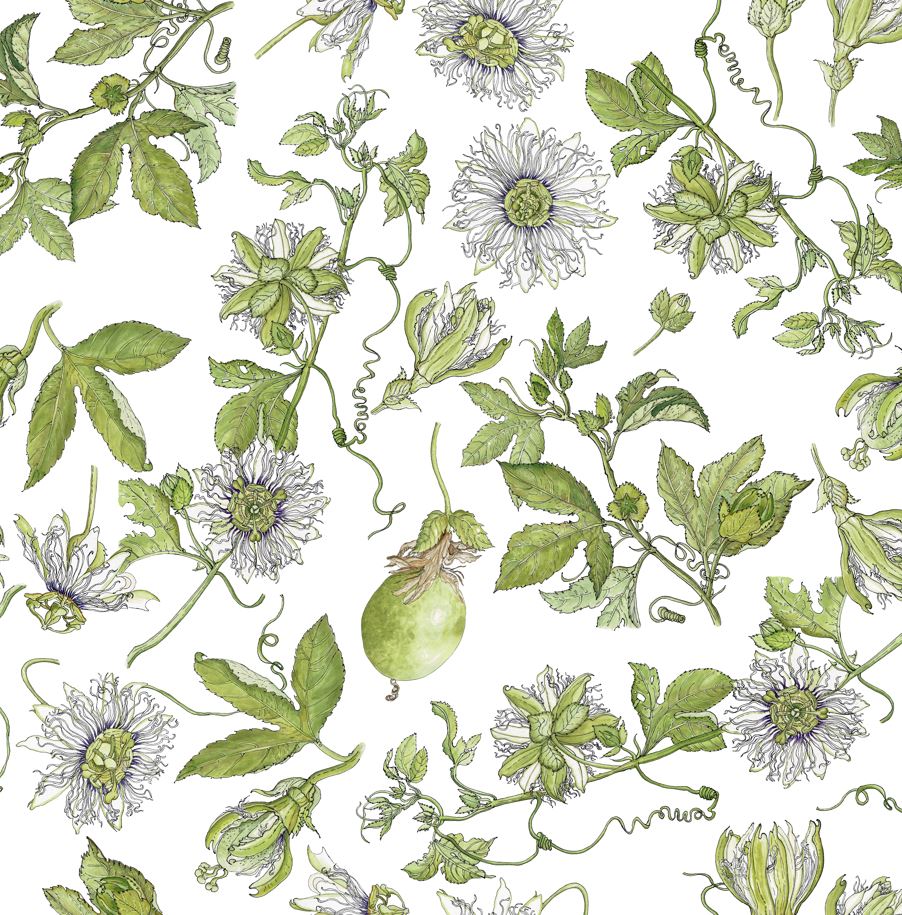CoralBloom Interview with Best Little Guide (March 2022)
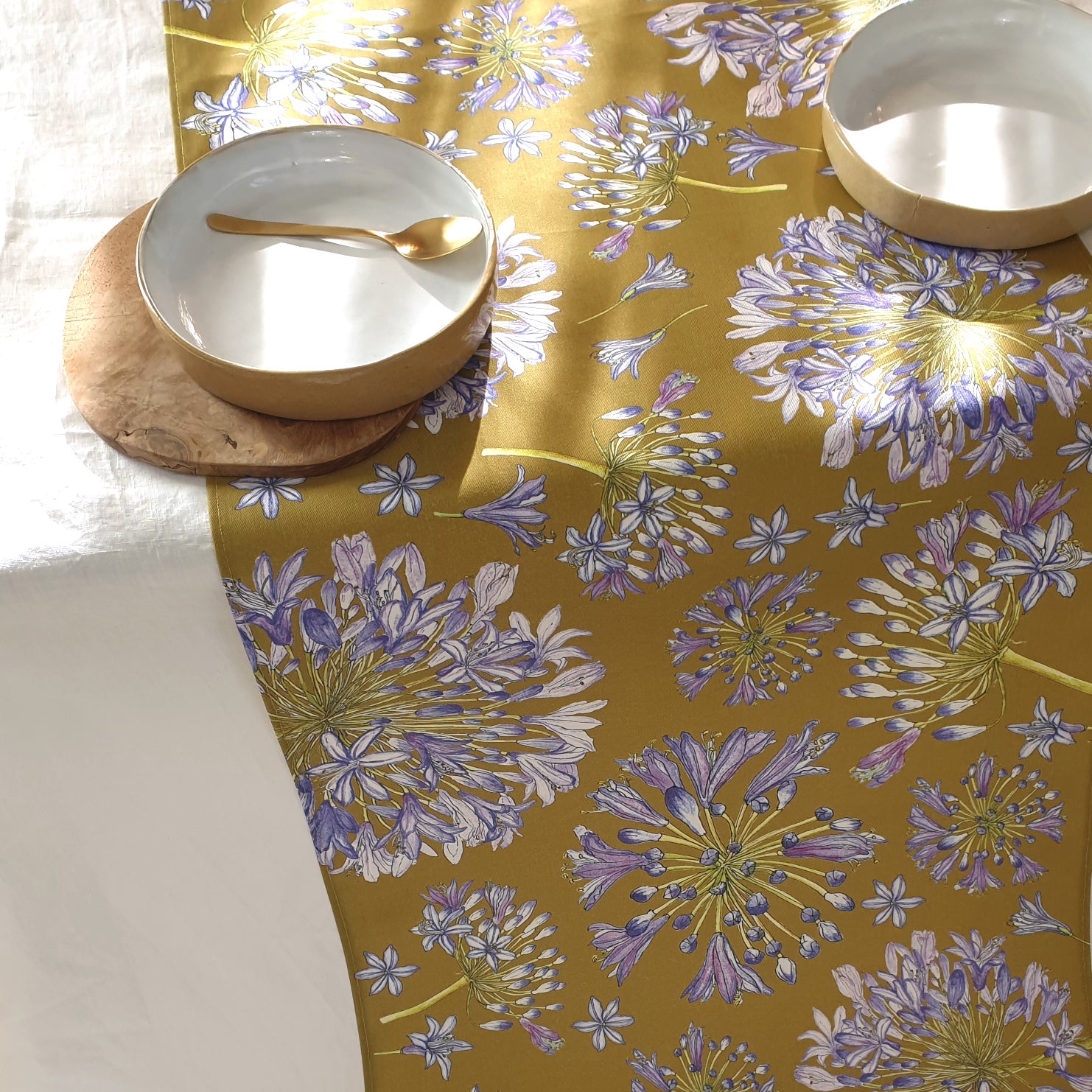
It was such a pleasure to share our story about CoralBloom with Leigh from Alphabet Social for the Best Little Guide. Scroll down to read our interview below...
"Wherever nature inspires a brand, there’s a sense of calm that follows... and as you look at CoralBloom’s online store, you’ll notice the influence of South Africa’s diverse fauna and flora on almost every item from the beautiful floral textiles to the gorgeous stationery and jewellery. We sat down with Michelle Jooste, co-founder of CoralBloom to chat about how her botany studies collided with her painting hobby to culminate in this thriving family-run business. Thanks for sharing the story of CoralBloom with us, Michelle.
Please give us a brief introduction to yourself?
I am Michelle, a self-taught artist, jewellery maker and designer for CoralBloom. I have a background in science (PhD Botany and Microbiology) and after completing my studies I decided to take a gap-year to reconnect with my creative side. Now, two years later a hobby of painting and jewellery making has turned into a full-time business and career.
I have a deep love of nature and greatly admire the biodiversity of the South African fauna and flora. Combining my love of nature and art I feel like I have truly found my dream niche working as a textile and product designer for CoralBloom!

Can you share a bit of the background story of CoralBloom - how and when did you start?
As a family-run business, our love and admiration of nature is integrated with conservation and beauty which forms the foundation of this creative endeavor. We love to spend time exploring the rock pools, mountains and veld surrounding the village of Cape Infanta, the true inspiration behind the functional art range of CoralBloom. My sister and I came up with the brand name back in 2010, fusing our love of the sea and beachcombing treasures (Coral) and our love of flowers (Bloom).
The first CoralBloom creations were made when I was a first year BSc student at university. At school I always dreamed of learning to scuba dive and at last this became a possibility as the university dive club offered [very expensive] training. My parents have always supported my hobbies, but with this particular interest, I had to earn pocket money and pay my own way. So I set my mind to it and started making costume jewellery from a reclaimed copper geyser, cutting birds and swallows and treating them with a blue patina. I sold these jewellery pieces to shops in and around Stellenbosch, and after a few months I had made enough money to get my certified training and even go on a diving trip to Mozambique. I had proven to myself that with some creative ingenuity, hard work and determination I can make my dreams materialize. Since then I have always been intrigued by the challenges of entrepreneurship!
Tell us a bit about your team. Where are you based? How many people are involved in CoralBloom and the running of it?
We have an absolutely amazing team of 4 people - CoralBloom is a family initiative woven together by my sister, mum, dad and myself. Everything at CoralBloom is done in-house from original drawings & illustrations, to fabric selection, to product design and manufacturing; styling and photo-shoots. Our family has always had a heart driven passion and synergistic dynamic where everyone’s unique skills are showcased. My mother and sister, both self-taught artists, contribute the original naturalist paintings fusing traditional and modernist watercolour designs. My father is the talented carpenter and self-taught jeweller who transforms reclaimed metal into wearable functional art.
My parents live in the picturesque coastal town of Cape Infanta, surrounded by the Breede River, beaches of the St Sebastian Bay and the Potberg Mountains. My sister Megan is a conservation ecologist (BSc Honours) and freelance artist living in the Karoo. She uses her scientific knowledge and strong graphic illustration style to meticulously capture each subject. I translate the artworks into digital designs, make all the textile products and balance all operations for CoralBloom based from our studio in Paardevlei.

How did the idea to start CoralBloom come to life?
For as long as I can remember I have been playing with ideas to sell handmade goods. From our first holiday market at Cape Infanta to weekend festivals selling costume jewellery at Rocking the Daisies, I have always had an entrepreneurial curiosity and unwavering support from my family.
What started out as a side-line hustle from my student days has grown into a full-time business and it all happened rather unexpectedly during my gap year in 2019. A year of playing with creative ideas combining our love of art and nature has opened countless doors for our business and has since evolved into an extensive range of quality functional art including more than 120 products.
What were some of the first products CoralBloom offered, and how did you expand?
Some of the first CoralBloom costume jewellery items included blue patina swallows made from reclaimed metal. These earrings and pendants were very popular since the start of our journey. We have refined our designs and techniques, and we’re working on an ever growing collection of jewellery pieces that celebrate nature and breathe new life into discarded metals. We have since expanded the range to include delicate pansy shell and droplet ranges made from reclaimed aluminium and brass, where each shape is lovingly polished by hand. We have also incorporated delicate Japanese glass beads, genuine leather and freshwater pearls to adorn the reclaimed metal shapes.

Our original range included stationery and jewellery, both incorporating a strong ethos of upcycling. My sister and I bought old books, sheet music, sewing patterns and maps from second hand shops and used the paper to make vintage envelopes, cover notebooks and small gift boxes made from recycled cereal boxes. This was a slow labor of love, but we learned that stationery makes for great gifts and this led us in the direction of a stationery range featuring our original artworks. Since then we have made the jump from printing on paper to printing on textile.
The learning-curve has been steep. The process of translating artworks from sketch-book to digital designs and onto fabric has not been easy. There have been some bumps and expensive mistakes along the way, but with perseverance and determination we have adapted and fine-tuned the process.
As a hobby artist, when did you realise you could combine your passion for botany and art?
While working on MSc and PhD research projects I loved drawing my own original diagrams for my thesis and research papers. A fundamental understanding of the biology surrounding the Cape Flora, along with a love for design, has allowed me to play with compositions with unique insights. I am currently spending my time working on designs using the exquisite artworks painted by my mum and sister, but some of our future plans are to include my botanical paintings too.
If you could choose just ONE product from your range, what would it be and why?
That’s easy. The hemp linen kimono. I absolutely adore the feel and muted colours of hemp linen. The fibers have numerous beneficial properties for the wearer and a significantly lower impact on the environment. All together, it is a sustainable choice for clothing.

Hemp plants require significantly lower water consumption to produce and require no fertilizers and pesticides. Close to 100% of the plant can be utilized for food, medicine, construction materials and textiles. The textiles are durable and strengthen with age, and unlike other textiles, get better with age! As the fibers are hollow, similarly to pure linen, they make the material adaptable and suitable for both summer and winter. I hope to expand the CoralBloom range to include a variety of hemp products - from dresses, tops, wrap skirts and collared shirts by March 2022.
How do you limit your business impact on the environment?
We align ourselves with slow and circular design principles and strive to create thoughtful items that communicate a story of respect and care for Mother Nature. We ensure that materials and supplies are sourced locally and work with local printers who use eco-friendly water-based inks and energy saving equipment. Our range is currently available in pure cotton, linen and hemp. We want to continue introducing hemp in the form of familiar products while educating consumers about the benefits of hemp as an eco-conscious alternative to synthetic and natural fibers. I am focused on continuously expanding my knowledge and learning as we go, doing in depth research for each step of the process when we explore new product designs for CoralBloom.
To prevent wastage, we have a digital catalogue of prototypes and products are made to order. Layouts for printing are meticulously planned to minimize offcuts and wastage. Each item is then lovingly hand-made by us in our local studio in Somerset West. We are committed to an ethical and transparent growth of our brand and take the responsibility to educate consumers to choose products that consider the health of our environment.
Covid’s been a tough time for everyone, especially small South African business owners. How did CoralBloom navigate through this?
Sales grinded to a halt, but we quickly realized that there was an acute shortage of reusable material face masks and fiercely got to work. Dealing with the challenges during these times launched us into a completely new trajectory of textiles that sustained CoralBloom throughout the harsh terrain of lockdown.
Our sole source of income came from facemasks for most of 2020. With our mask-making endeavor we worked on a parallel project of making and donating reusable masks to communities in need, which was very well received by our customers and helped us gain a lot of support from online shoppers and stockists throughout South Africa.

What inspires you to push past such obstacles?
CoralBloom is a project that is very close to my heart. When the reality of the pandemic started to set in, I was nowhere near ready to give up after only a year of trading. Creative thinking and flexibility allowed us to come up with practical solutions to overcome the basic obstacles of life during lockdown.
The jump from stationery and jewellery to the world of textiles provided us with wonderful opportunities to launch new products and grow our range. The textiles feature original artworks incorporating local fynbos, shells and beloved insects. The natural theme and colours seem to have resonated with many South Africans. The ever-expanding range has since grown to include homeware, décor and loungewear to help uplifting, nature-inspired designs find their way into the home of locals and international clients.

Any words of wisdom for those facing similar challenges?
I think it is important to know your personal goals and have a clear vision for your business. Along with that, creative thinking, hard work and a supportive environment will help drive you forward. I am very committed to the vision for CoralBloom. I continuously dream up new ideas and together with the support from my talented family and loving partner Xavier, our small startup business has survived and even flourished.
We love hearing about local brands, and we are always hoping to discover new ones. What are your current local faves to support?
There are so many talented and stunning local brands, but these are our top five absolute favorites:
-
Original art by Daleen Roodt @artist.daleenroodt
-
Sculptures by Karlien van Rooyen @karlien_van_rooyen
-
Jewellery by Sophia Le Roux @sophialeroux_jewellery
-
Bridal & resort wear by Nadya von Stein @nadyavonstein
-
Botanical textile printing by Inyoni Art @inyoni_art
-
Pressed botanical art by VELT @velt.co.za
